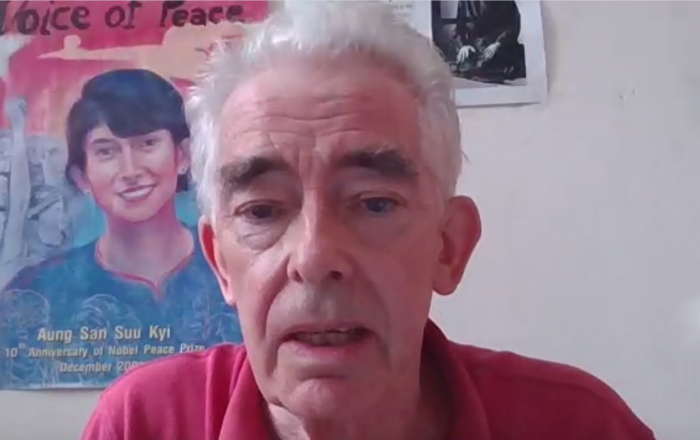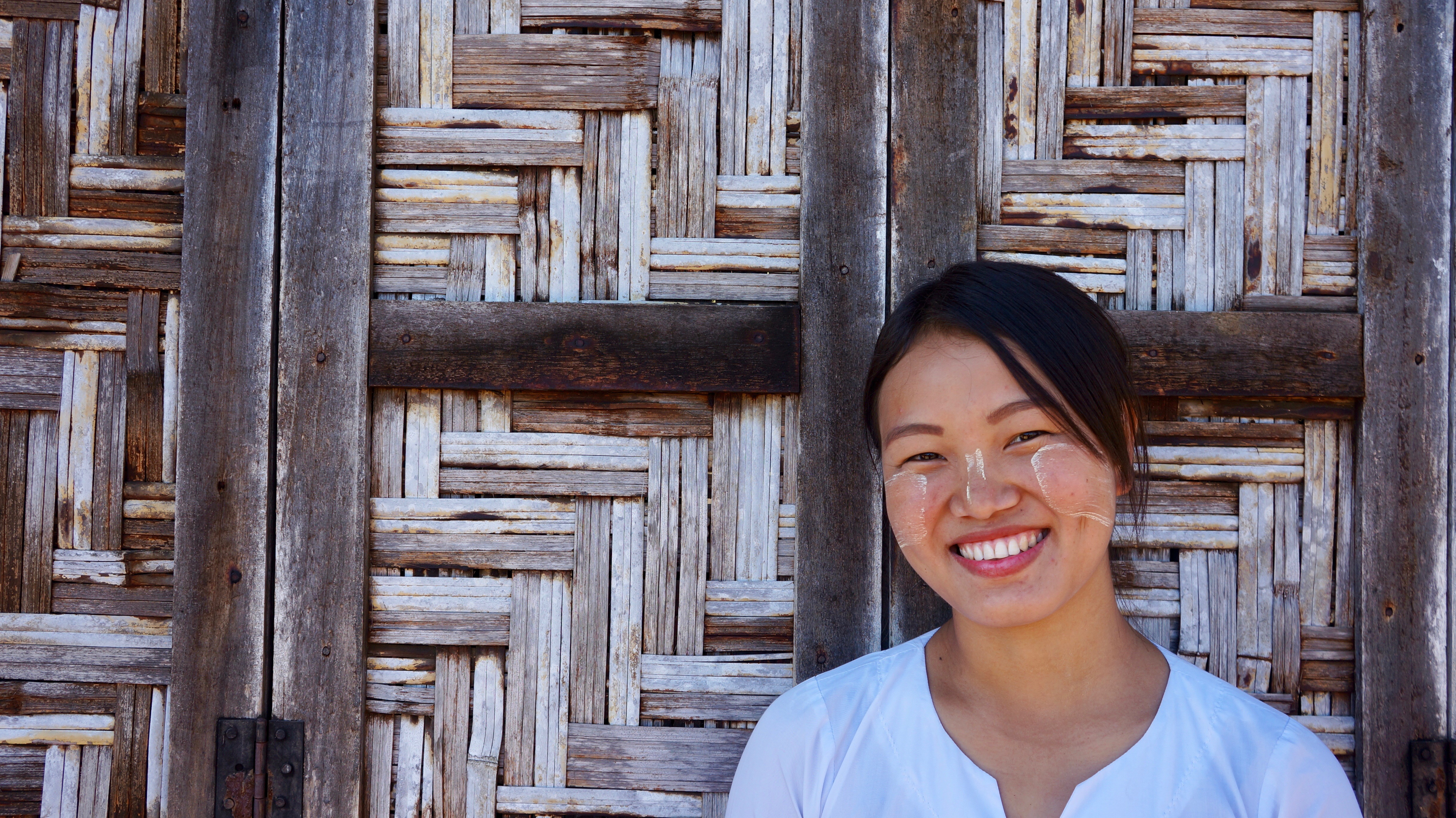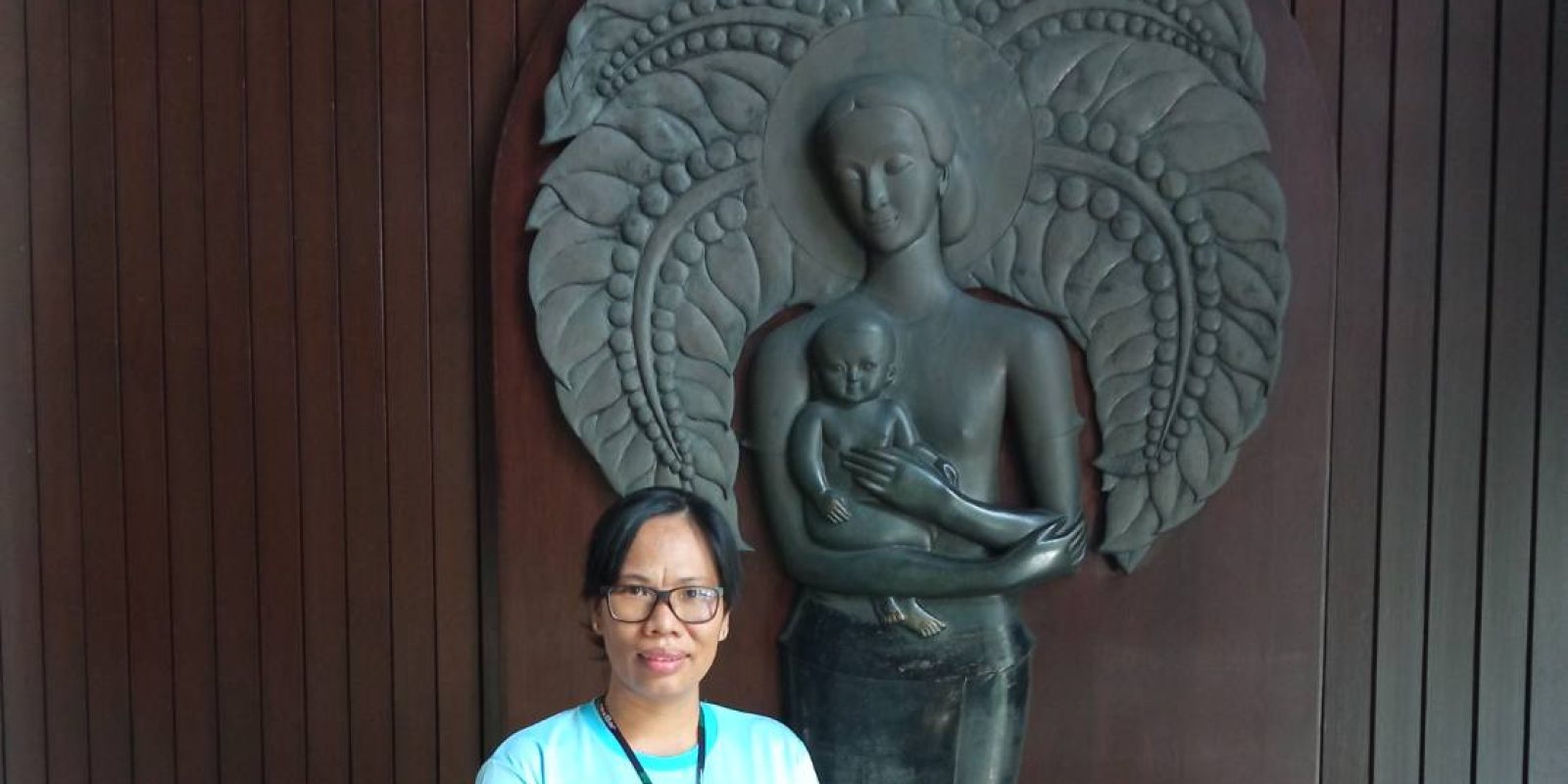Thailand: Father Joseph Hampson (JRS Thailand) as a key speaker in co-hosted webinar series
16 December 2025|Thailand Communication Officer

August 5, 2020 was the last session of a special webinar series under “Voices from the Field: Myanmar Refugees Living on the Thai-Myanmar Border” co-organized by JRS Thailand. Father Joseph Gerald Hampson, SJ, Education and Pastoral Project Director in Mae Hong Sorn, Thailand was one of the key speakers.
Father Joe has worked for JRS for about two decades in various positions and countries. Prior to returning to Thailand a decade ago, Father Joe worked in various countries in Africa. While in Africa, he witnessed that it was often cross-border countries that provided initial aid. And many times, it’s host countries – often poor – that offer immediate assistance and protection. counterparts. JRS hopes to respond to this reality with an attitude of respectful listening.
The key focus of Father Joe’s talk was the current situation for Karenni refugees at the Thai-Myanmar border and JRS’ role in possible solutions for their future. JRS has supported Karenni educational activities for the past three decades and believes that support must be there for the refugees when needed. JRS strives to bring the value of accompaniment in everything they do to serve refugee and asylum seeker communities.
JRS’ presence at the border helps the situation of Karenni refugees at the Thailand/Myanmar in many ways: it internationalizes the situation at the border, which would otherwise be ignored and forgotten; it provides a form of protection as well as respect for others in partnership; and it mitigates the dangers of creating extremism, fundamentalism, or nationalism.
It is important for JRS to be part of both sides of the border, especially during conflicts. It allows for maintaining cross-border information flows, promotes greater self-awareness and self- criticism, and capacity for analysis.
JRS has partnered with the Karenni Education Department (KnED) because we believe that education is a core humanitarian response. It promotes self-worth, mutual respect, and reinforces individual, as well as community identity. Furthermore, it unlocks a possible brighter future for a new society of the younger generation that can and should be more just and fair than the one that forced their parents into exile.



